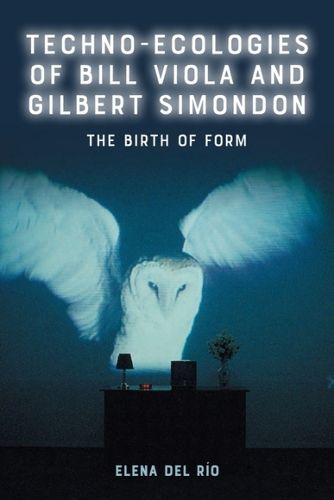Readings Newsletter
Become a Readings Member to make your shopping experience even easier.
Sign in or sign up for free!
You’re not far away from qualifying for FREE standard shipping within Australia
You’ve qualified for FREE standard shipping within Australia
The cart is loading…






Both Viola and Simondon prioritise a techno-aesthetic experience that reveals a consistent pattern of interdependence between form and matter, nature and culture, human and nonhuman. Inspired by Simondon's ideas on individuation as process, and by other major figures of process philosophy such as Raymond Ruyer, Deleuze and Guattari, and Brian Massumi, Elena del Ro delves deep into Viola's art and finds a politics of nature that is also a politics of the affects. In taking full account of the interrelation between collective affects and living milieus, this politics exceeds the still anthropocentric project of a politics reductively focused on environmental degradation.
The book works with a broad concept of ecology that encompasses a nature-culture continuum - from Simondon's associated milieu to Guattari's tripartite ecological praxis, from Deleuze and Guattari's existential territories to Massumi's affective events. Attending to this nature-culture continuum and activating our collective energies are prime strategies in tackling the overwhelming psycho-social and environmental crises we face.
$9.00 standard shipping within Australia
FREE standard shipping within Australia for orders over $100.00
Express & International shipping calculated at checkout
Both Viola and Simondon prioritise a techno-aesthetic experience that reveals a consistent pattern of interdependence between form and matter, nature and culture, human and nonhuman. Inspired by Simondon's ideas on individuation as process, and by other major figures of process philosophy such as Raymond Ruyer, Deleuze and Guattari, and Brian Massumi, Elena del Ro delves deep into Viola's art and finds a politics of nature that is also a politics of the affects. In taking full account of the interrelation between collective affects and living milieus, this politics exceeds the still anthropocentric project of a politics reductively focused on environmental degradation.
The book works with a broad concept of ecology that encompasses a nature-culture continuum - from Simondon's associated milieu to Guattari's tripartite ecological praxis, from Deleuze and Guattari's existential territories to Massumi's affective events. Attending to this nature-culture continuum and activating our collective energies are prime strategies in tackling the overwhelming psycho-social and environmental crises we face.